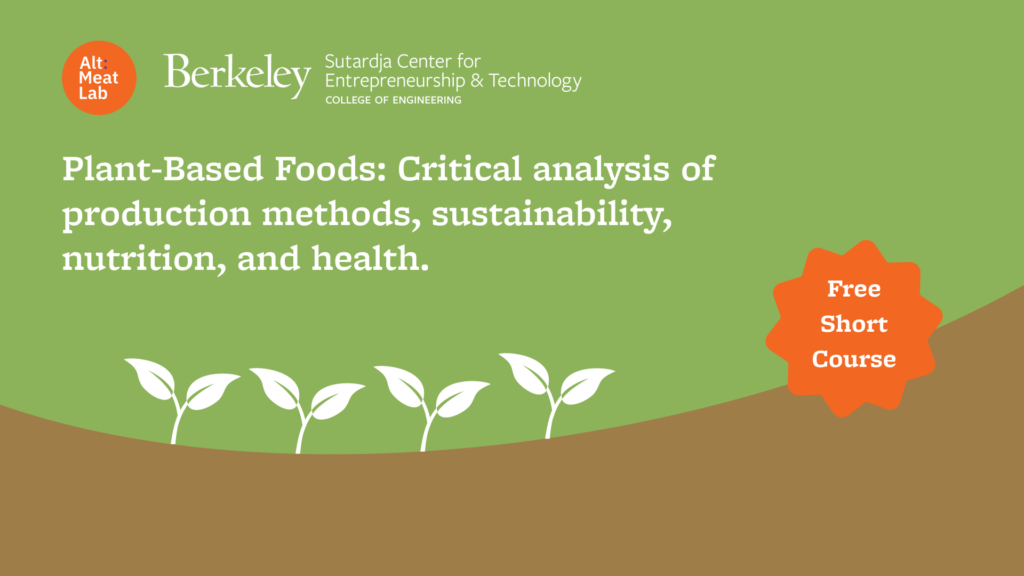Berkeley Alt: Meat Lab Offers Free Course to Demystify Plant-Based Foods
More meat and dairy alternatives are showing up in restaurants and in supermarkets everyday; the new free course will help consumers understand how these alternatives are made and which may (or may not) be healthier and better for the planet.

Have you ever wondered how that “beefy” plant-based burger is made exactly? Does being made from plants make it healthier for you and more sustainable for the planet? In a series of workshops taught by Dr. Ricardo San Martin, co-director of the UC Berkeley Alternative Meats (Alt: Meat) Lab, Dr. San Martin hopes to demystify misconceptions about plant-based dairy and meats to help the public make informed choices about what goes into their belly.
“There is still a lack of fundamental research on these new plant-based food alternatives, and much of the communication comes from companies and mission-driven organizations that want to make the claim that their products are healthy and sustainable,” says Dr. San Martin. “So, we are holding this free course that is open to the public to help the general public understand whether or which foods are the best bets for health and the environment.”
The free course, titled Plant-Based Foods: Critical analysis of production methods, sustainability, nutrition, and health will be delivered in three 2-hour sessions online via Zoom allowing anyone in the world who is interested in plant-based foods and other meat and dairy analogs to join.
This free course is intended for anyone that wants to know how the new generation of plant-based foods are made (meat, milk, butter, etc.). The course will help consumers decide which ones to eat, and which ones, for the time being, they might prefer to pass on. Contents of the course include critical discussion of the following plant-based analogs: ground beef, milk/butter, cheese, as well as a brief discussion of upcoming trends like fungi-based foods, cell-cultured meat, precision fermentation, and how entrepreneurs in the future can work to make healthier, more sustainable foods.
Instructor
Ricardo San Martin
Co-founder and director of the Alt:Meat lab at the University of California, Berkeley Sutardja Center for Entrepreneurship and Technology (College of Engineering).
Dates & Registration
Note: Attending all three webinars is strongly encouraged to fully understand the content, but not required.
November 14, 5 p.m. PT
November 16, 5 p.m. PT
November 21, 5 p.m. PT
About the UC Berkeley Alternative Meats Lab
The Alternative Meats (Alt: Meat) X-Lab at UC Berkeley helps entrepreneurs and researchers investigate the next generation of foods such as plant-based meats, dairy substitutes, and alternative sources of fat and protein.
Surprisingly, sustainable food tech is currently addressed by few companies, and there is a lack of fundamental research to allow rapid progress. The industry is still based on more art than science. At the Sutardja Center for Entrepreneurship & Technology at the University of California, Berkeley, we are changing this by building an open and collaborative space, where aspiring entrepreneurs are developing novel solutions for food’s current impact on the environment, health, and animal welfare.
About the Sutardja Center for Entrepreneurship & Technology
The Sutardja Center for Entrepreneurship & Technology is the premier institution on the UC Berkeley campus for the study and practice of “technology-centric” entrepreneurship and innovation. Since 2005, SCET has created the foundation of Berkeley’s entrepreneurship ecosystem including SkyDeck, the Fung Institute, the Engineering Leadership Professional Program, Global Venture Lab, and an extensive ecosystem of Silicon Valley and Global partners.